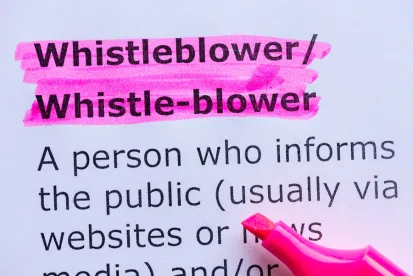The United States Department of Justice settled a case against a menswear company for significantly underreporting the customs duties owed on the goods it imported into the country. Under the terms of the settlement, Luchiano Visconti paid $3,641,157. The whistleblower was the general manager of a Turkish manufacturing company that made and supplied menswear to the defendant company. The government intervened in the whistleblower’s case and then the parties agreed to a resolution through a stipulation. Typically, relators in qui tam customs fraud cases can be rewarded between 15-25% of the government’s recovery.
Luchiano Visconti Loutie LLC d/b/a Luchiano Visconti is an importer and reseller of menswear to department stores in the United States and has its corporate headquarters in New York. According to the allegations, Luchiano Visconti and its manager, Sasha Hourizadeh misrepresented the value of the goods they imported into the U.S. Through a combination of invoice prestidigitation and modification, the apparel company presented invoices to their customs brokers stating that the value of their goods was lower than it actually was. This caused the defendants to underpay customs duties by $1.8 billion over a six-year period. The government’s investigation found that Luchiano Visconti regularly paid its foreign manufacturers more for the clothing articles than they reported to U.S. Customs and Border Protection. The defendants admitted responsibility for their misconduct.
Knowingly underreporting the value of imported goods constitutes customs fraud and violates the False Claims Act. Importers need to provide Customs with a bill of lading showing what was shipped, an invoice verifying the value of the shipped items, and CBP Form 7501 declaring the value of the imported merchandise. Importers also have to declare the prices they have paid for what they are importing and any “assists,” or parts they have purchased to use in the final product they import. While businesses use customs brokers to assist with submitting documentation to Customs, the importer is ultimately responsible for ensuring the accuracy of the information about their products that they send to Customs. The U.S. Attorney for the Southern District of New York said about this case, “Luchiano Visconti and Hourizadeh engaged in a fraudulent scheme to cheat the Government of customs duties owed by falsely reporting the value of the apparel brought into this country. This Office is committed to combatting customs fraud and will continue to hold companies, as well as their executives, accountable when they mispresent the value of imported goods to evade paying legally required duties.”
The Department of Justice and U.S. Customs and Border Protection needs whistleblowers to speak up when they observe companies trying to evade customs and tariffs to, as the Executive Assistant Commissioner for CBP’s Office of Trade remarked, “to protect a fair and competitive trade environment” and “facilitate lawful trade.”




 />i
/>i

